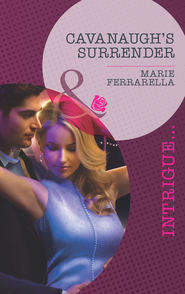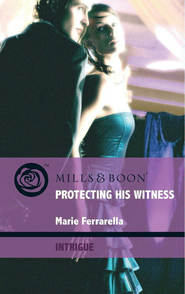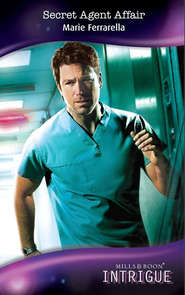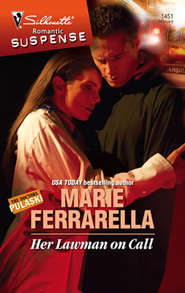По всем вопросам обращайтесь на: info@litportal.ru
(©) 2003-2024.
✖
Romancing the Crown: Max & Elena: The Disenchanted Duke
Автор
Год написания книги
2019
Настройки чтения
Размер шрифта
Высота строк
Поля
Impatience clawed at Max as he struggled to clear his head. It still felt as if all his thoughts were under water.
“The woman I was in here with last night. And before you tell me that you don’t know who I’m talking about, I saw the way you looked at her. Like you’d already met. If you didn’t know her, you wouldn’t have put me in your back room to sleep it off.”
The bartender laughed. It sounded more like a cackle and was followed up by a hacking cough. “I don’t know her. Not in any real sense of the word. She’s been here a few times and she gave me fifty bucks to let you sack out in the back room.” He picked up the broom again and began sweeping halfheartedly. “Would’ve given me ten more if the lock on the door worked, but it’s busted, just my luck.”
Max didn’t know if he was buying into this, but the buzz in his head was making it hard to think. “So you don’t know her.”
The man paused again, his expression wistful beneath the day old stubble. “No, but I’d sure like to. Don’t meet many of those in my line of work—fiery, not used up,” he clarified, then gestured around the establishment. “’Case you hadn’t noticed, this isn’t exactly an upscale club.”
Max didn’t bother commenting. He needed answers and if he wasn’t going to get them from this character who was little more than one step removed from a barfly himself, he had to fall back on a tried-and-true method. “Got a phone around here?”
The bartender reached behind the bar and brought out an old-fashioned, stark black dial-up telephone straight out of the last century. He placed it on the bar in front of Max.
“But it’ll cost you,” he said as Max reached for the telephone.
Digging into his pocket, Max pulled out a bill, glanced at it to see the denomination and slapped it down on the counter. Pulling the telephone over, Max dialed his office number back in Newport Beach. Three rings later, he heard his grandfather pick up and give the name of the agency.
“Hi, it’s Max,” he said into the receiver. He talked quickly, before his grandfather could ask any questions. “I need you to look someone up for me. Cara Rivers. Get me everything you can find: driver’s license number, address, priors if there are any, everything,” he emphasized again.
“What state am I looking in?” Bill asked, knowing better than to assume anything. Max got around.
Max paused, thinking, trying to pluck facts out of the murky sea that still surrounded his brain. Concentrating, he remembered the woman mentioning something about Shady Rock, Colorado. Maybe that was her point of origin. It was worth a try.
“Colorado.” He saw the bartender looking his way. The man made no effort not to look as if he was listening. “Start with a place named Shady Rock.”
“Shady Rock, huh?” Bill chuckled. “That’s almost as good as Truth or Consequences, New Mexico, or that other place, Hot Coffee.”
Max was not in the mood to see the humor in anything, least of all his condition. He was supposed to be able to see through people like Cara Rivers. And most of all, he wasn’t supposed to get himself drugged.
“Almost,” he agreed. Covering the receiver as he heard his grandfather begin to slowly type on the computer keyboard, Max looked at the bartender. “Got any coffee around here?”
He knew that this was going to take more than a little while. Though he liked to keep on top of the latest technology, his grandfather’s idea of typing fast amounted to three words a minute. Tops.
The bartender jerked a thumb toward the small table that was set up against the back wall. A coffee-maker, its pot half empty, was standing there. “Yeah, but it’ll cost you.”
Way ahead of the man, Max had already produced another five-dollar bill and placed it next to its mate on the bar.
Cara tried not to dwell on the man she’d left drugged in the bar. She knew it went with the territory but she couldn’t help feeling guilty, even though she’d slipped the bartender fifty bucks to let Ryker sleep it off in the back room. She forced her thoughts back on her job.
It amazed Cara how the simplest things often tripped people up.
Using credit cards had become an established way of life. People did it without a second thought, not realizing that they were simultaneously generating a paper trail as they paid for their entertainment, or their shoes or their gas.
Weber might be able to do without the entertainment or the shoes, but the gas, she was betting, since he was driving a car in his getaway attempt, was another story.
With her cell phone and her portable fax machine, along with several other state-of-the-art items stashed in the trunk of her car, Cara had managed to track Weber down via the activity on his credit card.
It helped having connections in the right places, she thought with a smile as she looked at the latest reported transaction.
Weber had purchased not only gas, but a burrito and a giant-size soft drink at a convenience store on highway 25. It was only fifteen miles away.
Putting pedal to the metal, she was there faster than the law would have smiled upon, the worn photograph of Kevin Weber she’d been showing around sitting on the passenger side beside her.
Screeching to a halt next to the small, squat convenience building, its paint peeling away under the unrelenting sun, Cara grabbed the photograph and dashed inside the store.
The temperature in the interior was only marginally cooler than it was outside. The air felt almost thick as she crossed to the counter. The man behind it looked as if he was ready to wilt.
Cara held up the photograph. “Hi, I’m wondering if you’ve seen this man in the last few hours?”
The man took only a couple of seconds to study the photograph. The other minute and a half were spent studying her.
“He did and Weber’s heading north. My guess is that he might be working his way to Canada.”
The clerk in front of her nodded in affirmation.
For the first time, Cara fully understood what was meant when someone said they could have been knocked over by a feather.
That voice could only belong to—
She swung around, her eyes wide, her mind racing. She knew who she was going to see even before she looked at him. Max Ryker.
Her mouth went dry. “You’re better than I thought you were.”
“And you’re more underhanded than I gave you credit for.” Taking her by the arm, he pulled her aside. He saw the way the man behind the counter was looking at them, his hand hovering over the telephone receiver. “Just a family spat, mister. If you don’t want any trouble, just go about your business,” Max told the barrel-chested man. His smile faded the moment he had her a safe distance away from her would-be protector. “What the hell did you put in my drink?”
Cara raised her chin. She’d never reacted well to being questioned. Her eyes swept over him. He looked none the worse for wear. The sleepy look in his eyes gave him a sexy appearance from where she stood.
“Nothing fatal.”
He snorted. “Obviously.” As she began to pull away, his grip on her upper arm tightened. “I don’t appreciate being drugged and then dumped.”
She looked at him indignantly. “I paid the bartender fifty dollars to let you sleep it off on a bed in the back room.”
“It was a cot and it wasn’t worth even fifty cents and change,” he informed her. But where he’d slept wasn’t the issue. What he’d had was. “Now, what the hell did you put in my drink—the truth,” he warned.
“Clonazepam.” She gave him the generic name. “It puts you out, that’s all.”
Max was familiar with the drug. It had made the rounds as everything from a tranquilizer to a sleeping pill to a recreational drug for what he deemed to be the mentally arrested, but predominantly was prescribed for seizures.
He arched a brow, looking at her, trying to make a judgment call that was right for a change when it came to her.
“Yours?”
Cara shook her head. She didn’t believe in taking anything more powerful than aspirin, and then only under extreme conditions.
“I know this pharmacist who isn’t exactly always on the straight and narrow.”
The man was only one of an arsenal of people she’d compiled over her lifetime, people who she turned to whenever she needed a favor that didn’t exactly fall within the proper lines smiled upon by society. She figured it was her due, after all the time she’d spent being passed from one house to another, trudging from one closed-clique class to the next over the process of transplantation.











